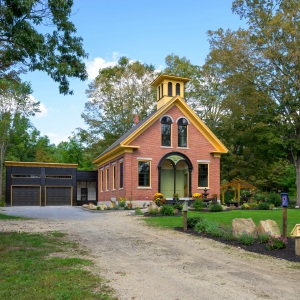12,500-year-old hunting camp in N.H. gets federal recognition
| Published: 05-04-2021 5:03 PM |
A New Hampshire hunting camp that was used by people more than 12,000 years ago has been placed on the National Register of Historic Places for its significance as an archaeological property.
The eight-acre Potter Site in the North Country town of Randolph “is a rare example of a highly intact, exclusively Paleoindian multi-purpose archaeological site,” the state Department of Natural & Cultural Resources said in a release. “Studies done by professional archaeologists indicate that it was used intermittently as seasonal hunting and fishing camps from 12,500-10,500 B.P. (before the present).”
That’s a very early date since the glaciers from the last Ice Age had receded only a few thousand, or perhaps even hundreds, of years prior to that.
State archaeologists have been excavating at the Potter Site, named for the man who owned the property, since at least 2003. New Hampshire has relatively few pre-Contact sites for excavation partly because of our geology and partly because people were relatively late arriving here due to the Ice Age.
The location of the Potter Site has not been made public to prevent damage from visitors. State officials described it like this:
“A majority of the artifacts recovered at the site during excavation are byproducts from the manufacture of chipped stone tools, including butchery implements, hide working tools, hunting weapons, woodworking tools and tools for cutting, scraping and shaping.
“Potter Site’s layout indicates that three household encampments were scattered across the area, along with three stone tool production workshops, a wooden tool production workshop and three undefined activity sites. When inhabited, the household encampments and workshop areas would have been within a few feet of each other.
“A portion of the stone tools and stone debris recovered come from stones not naturally found in the area, indicating that people at the Potter site traveled throughout the region, interacted with other Paleoindian groups and that the site itself was part of a much larger settlement system.”
Article continues after...
Yesterday's Most Read Articles
 Bill to allow ‘no fault’ evictions makes it to governor’s desk
Bill to allow ‘no fault’ evictions makes it to governor’s desk
 Around Concord: Living in an 1856 schoolhouse is (mostly) delightful
Around Concord: Living in an 1856 schoolhouse is (mostly) delightful
 ‘Over-regulation is going to create sneakier kids’: Concord High students react to impending bell-to-bell phone ban
‘Over-regulation is going to create sneakier kids’: Concord High students react to impending bell-to-bell phone ban
 ‘Deep flavor’ – New restaurant in downtown Concord offers creative spin on comfort food and cocktails
‘Deep flavor’ – New restaurant in downtown Concord offers creative spin on comfort food and cocktails
 Around Concord: The Balshaws bring a rustic revival to the Canterbury Country Store
Around Concord: The Balshaws bring a rustic revival to the Canterbury Country Store
 Dunbarton’s ‘Dynamo’: Kristine Flythe brings new life to town recreation activities
Dunbarton’s ‘Dynamo’: Kristine Flythe brings new life to town recreation activities
Listing to the National Register does not provide any more protection or impose any limitations on the property. In New Hampshire, listing to the National Register makes applicable property owners eligible for grants such as the Land and Community Heritage Investment Program or LCHIP (lchip.org) and the Conservation License Plate Program (nh.gov/nhdhr/grants/moose).
(David Brooks can be reached at 369-3313 or dbrooks@cmonitor.com or on Twitter @GraniteGeek.)
]]>







 Look, up in the sky! It’s… an Airstream trailer?
Look, up in the sky! It’s… an Airstream trailer? Around Concord: Over The Moon Farmstead brings mead, beer, pizza and music to Pittsfield
Around Concord: Over The Moon Farmstead brings mead, beer, pizza and music to Pittsfield
